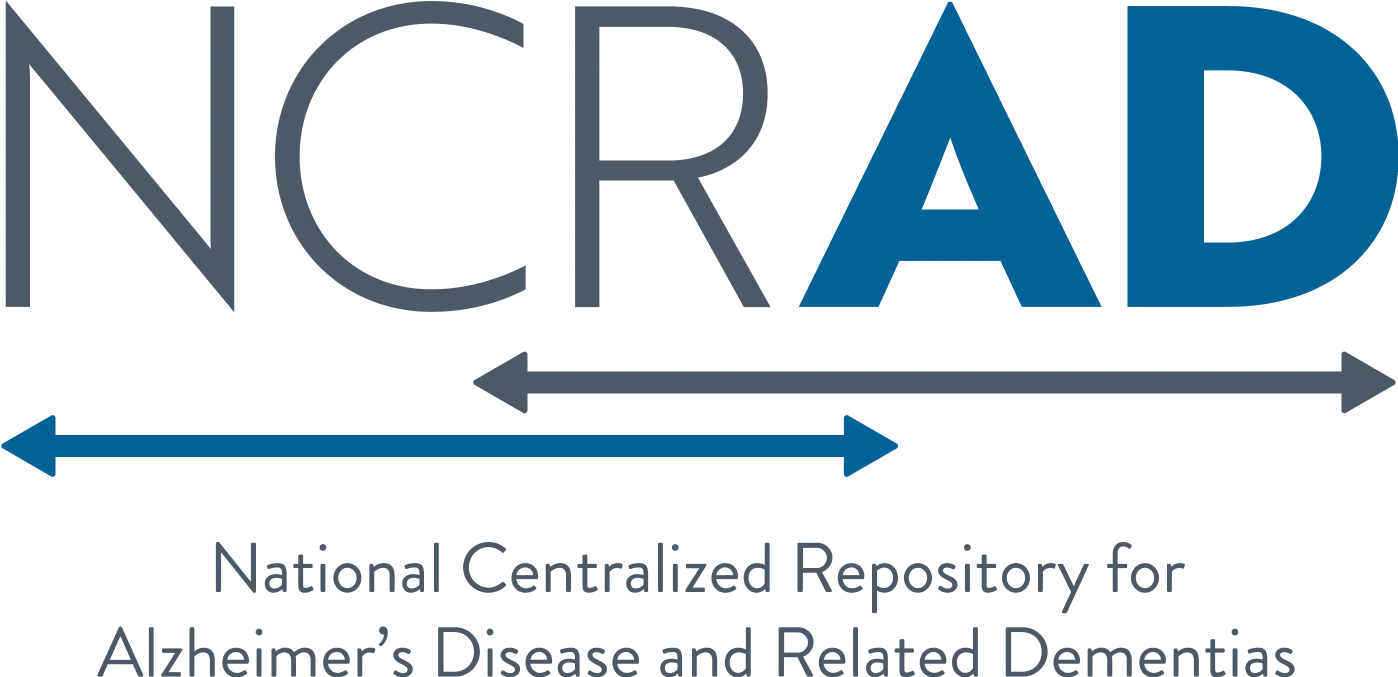Recommended Consent Language
When sharing samples with NCRAD prospectively, we recommend the following components be included in the informed consent to ensure samples can be shared. The wording listed below is only a suggestion and will need to be tailored to institution and study specific requirements.
Please Note: The language listed below references “biological samples” or “biological specimens”. Depending on your study and institution’s requirements, this may need to be more specific (for example: cell line, DNA, plasma,etc.).
Biological samples* will be sent to the National Centralized Repository for Alzheimer’s Disease and Related Dementias (NCRAD) for sharing with other investigators. NCRAD is a national resource supported by the National Institute on Aging (NIA) that prepares and stores biological specimens* from all over the world and makes them available to approved scientists who would not otherwise be able to access this material.
Your biological samples* will be maintained in the laboratory for many years. These samples will be coded and not identified by your name. The samples are necessary for long-term research and will be stored indefinitely.
The biological samples* allow for studies of the causes of many diseases, including Alzheimer’s disease or other related dementias.
Biological samples* and data will be shared with approved researchers.
The biological samples* may be provided to researchers at academic institutions, hospitals, and private companies. Specimens collected from you for this research may be used to develop products which could be sold in the future. The researchers do not plan to share any profits or losses from the sale of those products with you.
General: A possible risk from your participation in this study involves a loss of privacy.
Genetic Risk: Although your genetic information is unique to you, you do share some genetic information with your children, parents, brothers, sisters, other blood relatives and other members of your ethnic group. Consequently, it may be possible that genetic information from them could be used to help identify you. Similarly, it may be possible that genetic information from you could be used to help identify them. While information we now use to identify you will not be released (i.e. name, date of birth, address, telephone number), people may develop ways that would allow someone to link your genetic or medical information back to you.
We may use biological samples* collected as part of this study for genomic analyses such as whole genome sequencing. Whole genome sequencing involves determining the exact order of the base pairs (chemical letters) of your DNA. Other genomic technologies may be used and continue to be developed.
As the samples will be used for research purposes, you will not be given the results of the research performed on the biological samples*.
Results of the analysis of the biological samples* you have provided may be shared with other researchers. This information will be de-identified, meaning it will not contain any traditional identifiers (i.e. name, date of birth, address, telephone number).
You may choose to take part or may refuse to participate in the study at any time. Leaving the study will not result in any penalty or loss of benefits to which you are otherwise entitled. If you do withdraw from the study, then you may request that your data and any unused sample be destroyed. However, data and samples that have already been distributed to approved researchers will not be retrieved.
GINA language should be included.
If NIH funded, Certificate of Confidentiality language should be included.
- NIH funded studies automatically receive a Certificate of Confidentiality and must include this section. NCRAD does have a Certificate of Confidentiality for our biorepository.
- When possible, it is best not to include check boxes. Tracking of the various responses possible when check boxes are present can be challenging and lead to potential errors.
- All studies and institutions have different requirements but the more broad the consent can be written initially, the more flexibility you will have in the future
Additional Resources
Consent Language GuidanceNIH Genomic Data Sharing PolicyGenomic Data Sharing

